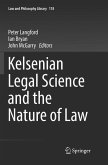This book may change the way legal scholars, political theorists and policy makers look at our immigration policies. From now on we have strong reasons for adopting a new default position for evaluating and designing our admission laws and policies: the exclusion of aliens seeking admission must be substantially justified (vis-à-vis the excluded aliens) by the state. The burden of proof should lie with the state. For want of such substantial justification the alien is to be admitted. As one the first in its kind, the book builds a comprehensive case for changing our admission policies through an analysis of the structure of the law and legal order. This opens new routes previously left unexplored by experts in immigration law and the ethics of migration. More importantly, as the admission laws become untenable from the legal perspective, policy makers can no longer hide behind the (formal) law. The book also revitalizes the scholarship in ethics of migration. The author shows how the seemingly diverging positions in favour of (more) open or closed borders all point in the same direction: admission must be justified and the first to do so is the state. Far from being utopian, the book renders the theoretical arguments tangible and realistic through an elaborate discussion of a concrete policy proposal by an expert committee on immigration law. In short, after reading this work, the reader is left with the conviction that the current default position of immigration laws and policies is not self-evident. As a result, the book already achieves its goal: the burden of proof has been reversed TOC:Introduction:Part I: The Legal Problem..-Section 1. Defining The Problem: Exclusion & A Priori..-Section 2: Diagnosis: What Makes The A Priori Exclusion Legally Valid..-Part II The Legal Claim..-Section 1 Inherent Sovereign Power Rule and The Prerogatives of Sovereignty..-Section 3 - The Authority of Our Admission Laws..-Part III The Ethical Claim..-I. Three Questions for Political Theory..-II. Setting the Stage: General Admission and Moral Intuitions..-III. Shifting the Burden of Proof: Balancing the Pros and Cons on Forehand..-IV. Guidelines for Institutionalizing General Admission as a Default PositionConclusions..-Part IV - The Institutional Claim..-I. Central Tenets of the Draft..-II. Critical Observation: Draft Goes Beyond Existing European Law..-III. Interpretational Issues and Suggestions..-Synthesis and Action..-Bibliography

